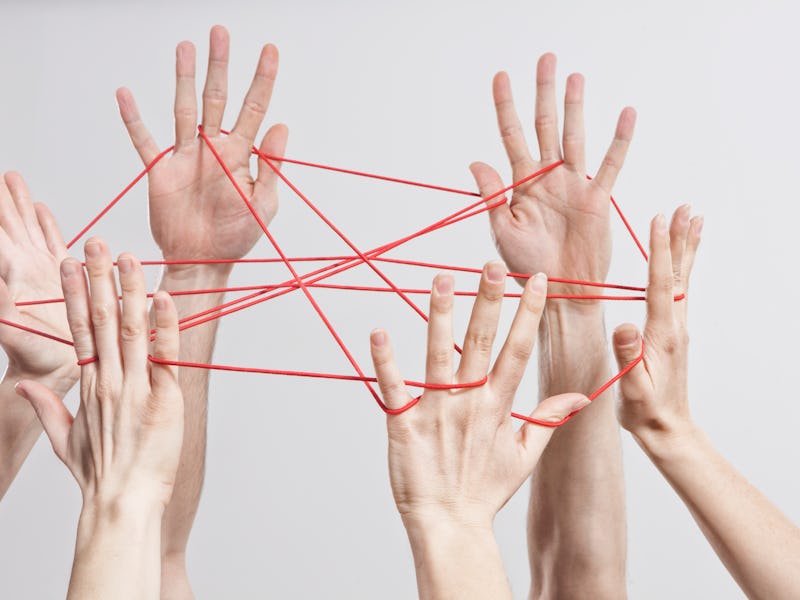Realizing you matter is more important than ever, according to a psychologist
Here are 5 steps you can stake to foster a sense of "self-mattering."

Living in self-isolation can be, well, isolating. As nice as it is that we have Zoom happy hours and FaceTime calls, the gift of Wi-Fi isn’t quite the same as seeing a face IRL. Experts emphasize that it’s truly best that we stay separated. Still, loneliness and isolation are not mentally healthy states in which to exist, and they often can come with dangerous side-effects.
What can help fight off these negative feelings? Knowing that you matter. It’s easy to shrug off that idea or dismiss it as cheesy. But studies show that knowing you matter — truly knowing so — can serve as a vital source of support when you encounter a crisis.
Gordon Flett is a professor in psychology at York University and an expert on the subject. His research links the feeling of not mattering to depression, as well as growing evidence that physical health is more at risk for those who feel like they don’t matter.
In a recent commentary published in The Journal of Concurrent Disorders, Flett and co-author Masood Zangeneh emphasize why the feeling like you matter is more important than ever: When we experience a crisis, knowing that you are valued can help you adapt and survive.
“Mattering is a source of resilience and joy — in contrast, the feeling of not mattering is a source of risk that can become wrapped in sadness and demoralization,” Flett tells me.
“People have a core need to know they are significant to others and it is central to how people see themselves at an identity level. I maintain that you really can’t be satisfied in life without the feeling of matter to others.”
The people who are most likely to be struggling in this situation, Flett asserts, are the people who have not already established the sense that they matter to others. In this case, the immediate focus should be finding ways to feel less alone and to foster those feelings of connectedness.
“When someone is that isolated, hopefully, they can generate their own sense of mattering to some degree by finding ways to send supportive messages to others, which hopefully, will be reciprocated,” Flett says.
To foster one’s own sense of mattering, Flett also recommends:
- Listening to podcasts: “I find just hearing the voices of other people helps.”
- Reading stories about people who have done incredible things for others: “It helps to know that people care about other people in general.”
- Go on a mission to draw attention to something that needs to be fixed in one’s community.
- Normalize this experience, by reminding oneself that they are connected to thousands if not millions of other people who share this same situation.
“People tend to get hit hardest when they convince themselves that they are the only ones in the situation they are in and no one else knows how they are feeling,” Flett says. “But they have plenty of company in terms of others who are feeling that way. It is not just a cliché to emphasize to someone ‘you are not alone.’”
Communities also have a role to play, Flett says. Basically, community leaders need to walk the talk: Saying your community members matter to you is one thing. Actually making sure voices are heard, and giving people a chance to express their feelings, is quite another.
“Here, just taking the time in a proactive way to stay connected with people is important,” Flett says. “Our city council representative has been emailing regular messages to keep people informed, and we received an invitation to a phone-in town hall meeting. These kinds of things make a difference at the best of times but especially during the worst of times.”
In times of incredible stress, it’s helpful to focus on basics: Food, health, shelter. One of those basics is also compassion — both for yourself and for others. Ultimately, mattering is something that anchors us, and that mooring can help us all stay afloat.